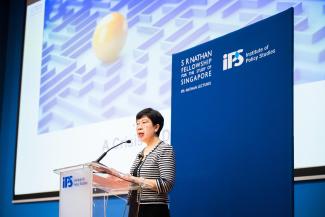
On November 27, 2024, Professor Lily Kong, President of Singapore Management University (SMU) and 15th SR Nathan Fellow for the Study of Singapore, delivered her third and final lecture as part of the IPS-Nathan Lecture Series. Hosted by the Institute of Policy Studies (IPS), the series has examined the evolving role of universities in addressing societal needs, culminating in this thought-provoking lecture titled Beyond the Ivory Tower: Research and the Dilemmas of Quality and Relevance.
Revisiting the Series: Context and Continuity
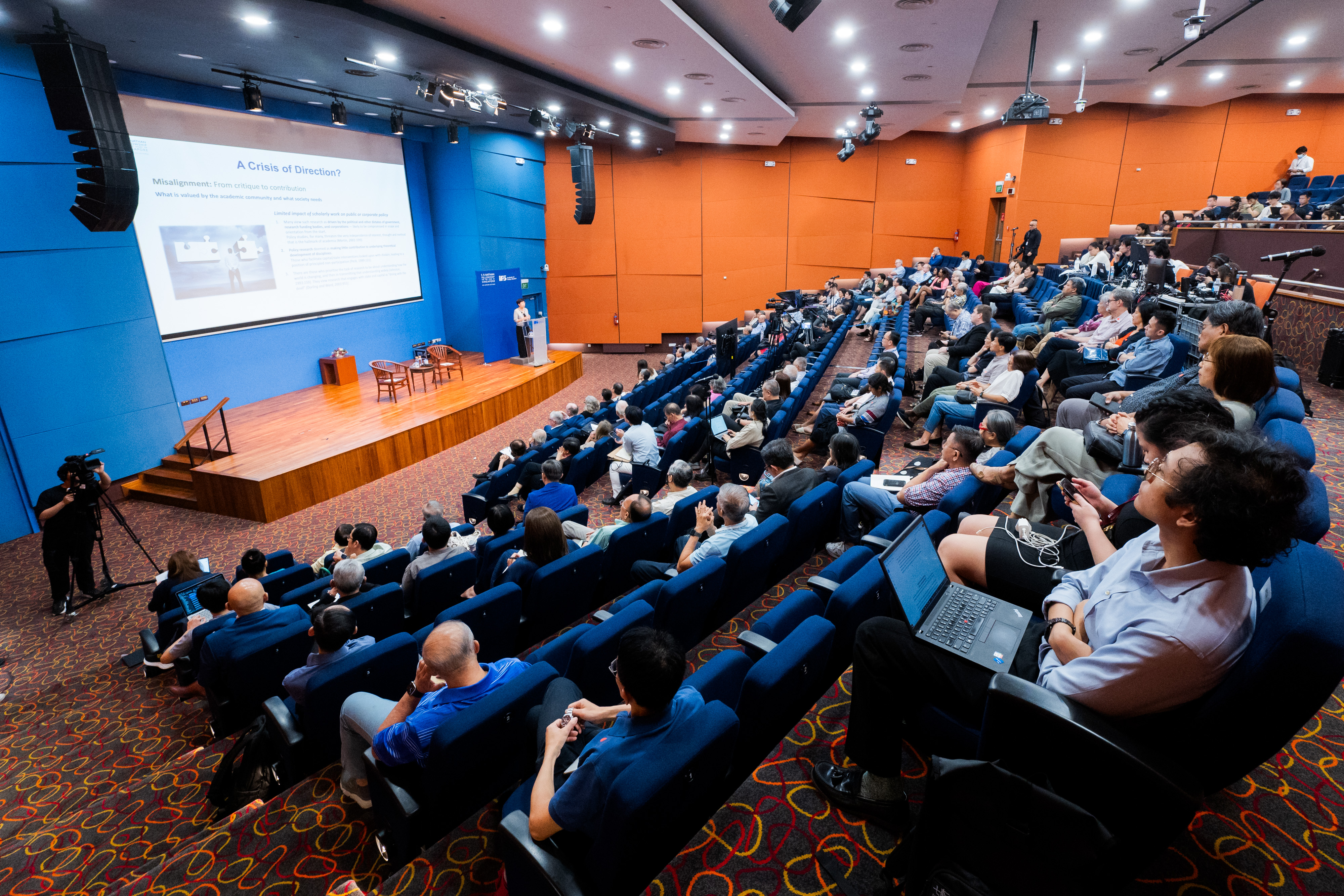
The lecture opened with a warm welcome to an audience comprising academics, policymakers, and members of the public. Prof Kong revisited the key themes of her earlier lectures, which explored the historical evolution of universities and their need to adapt to longer lifespans, foster interdisciplinary learning, and redefine their purpose in an era of rapid societal change. Building on these foundations, she shifted the focus to research, positioning it as both a guardian of intellectual freedom and a catalyst for societal progress.
Universities as Brain Trusts of Society
To illustrate the transformative potential of university research, Prof Kong highlighted landmark discoveries such as insulin, the seatbelt, and the AstraZeneca COVID-19 vaccine. These examples showcase universities’ capacity to drive advancements that improve human well-being. Yet, she warned that these successes coexist with growing concerns about the current trajectory of academic research.
A Crisis of Direction?
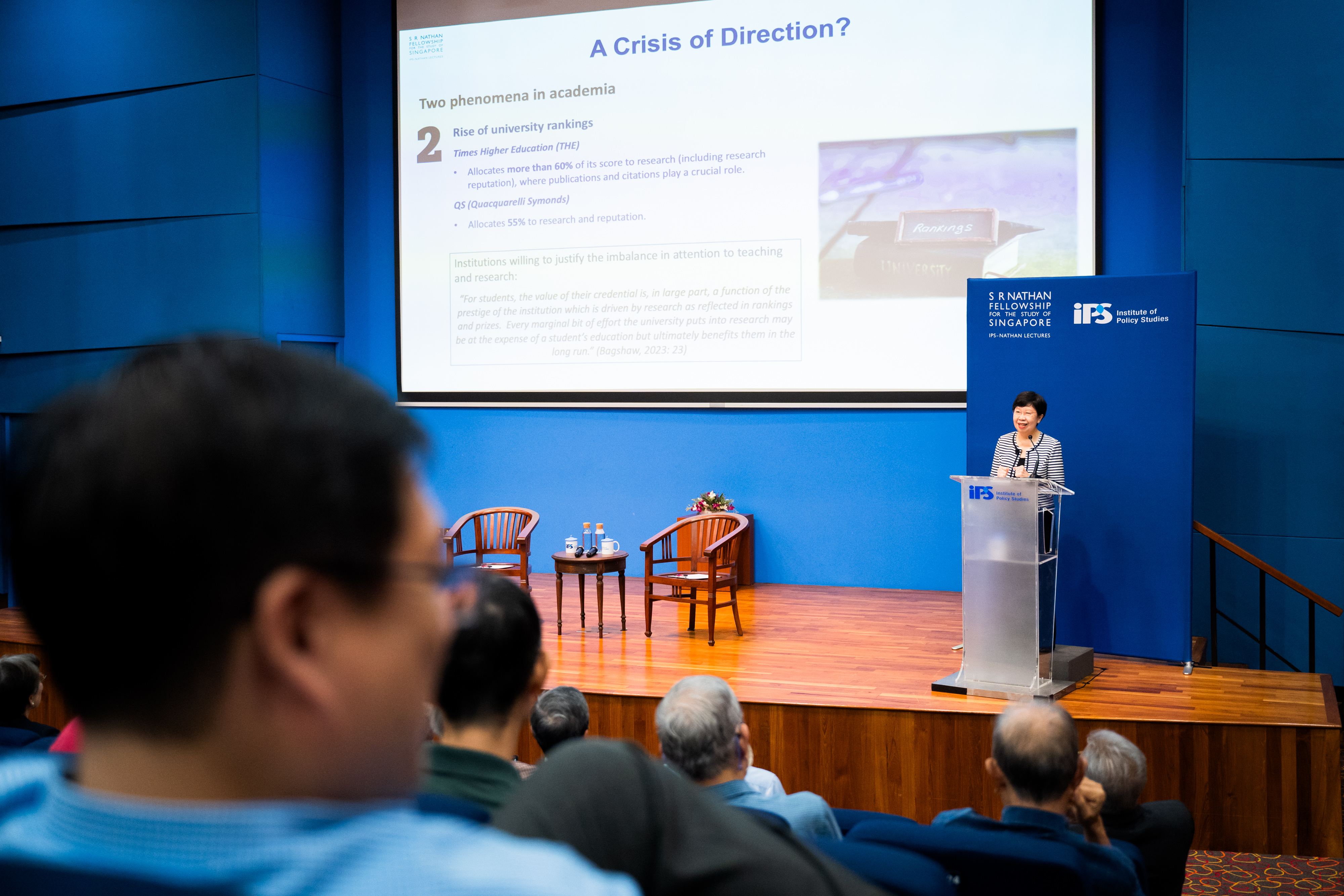
Are universities at risk of losing their way? In reflecting on the current state of university research, Prof Kong challenged the audience to consider how a “publish or perish” culture and an over-reliance on rankings undermine research integrity. She pointed out that these pressures often lead to:
- Misconduct: Breaches of academic integrity, such as p-hacking and data fabrication.
- Manipulation: Citation manipulation and its impact on academic credibility.
- Magniloquence: The use of unnecessarily complex language that obfuscates research.
- Mistreatment: Unsustainable working conditions for graduate students and early-career researchers.
- Misalignment: The disconnect between academic research priorities and societal needs.
The Urgency to Rethink Research Impact
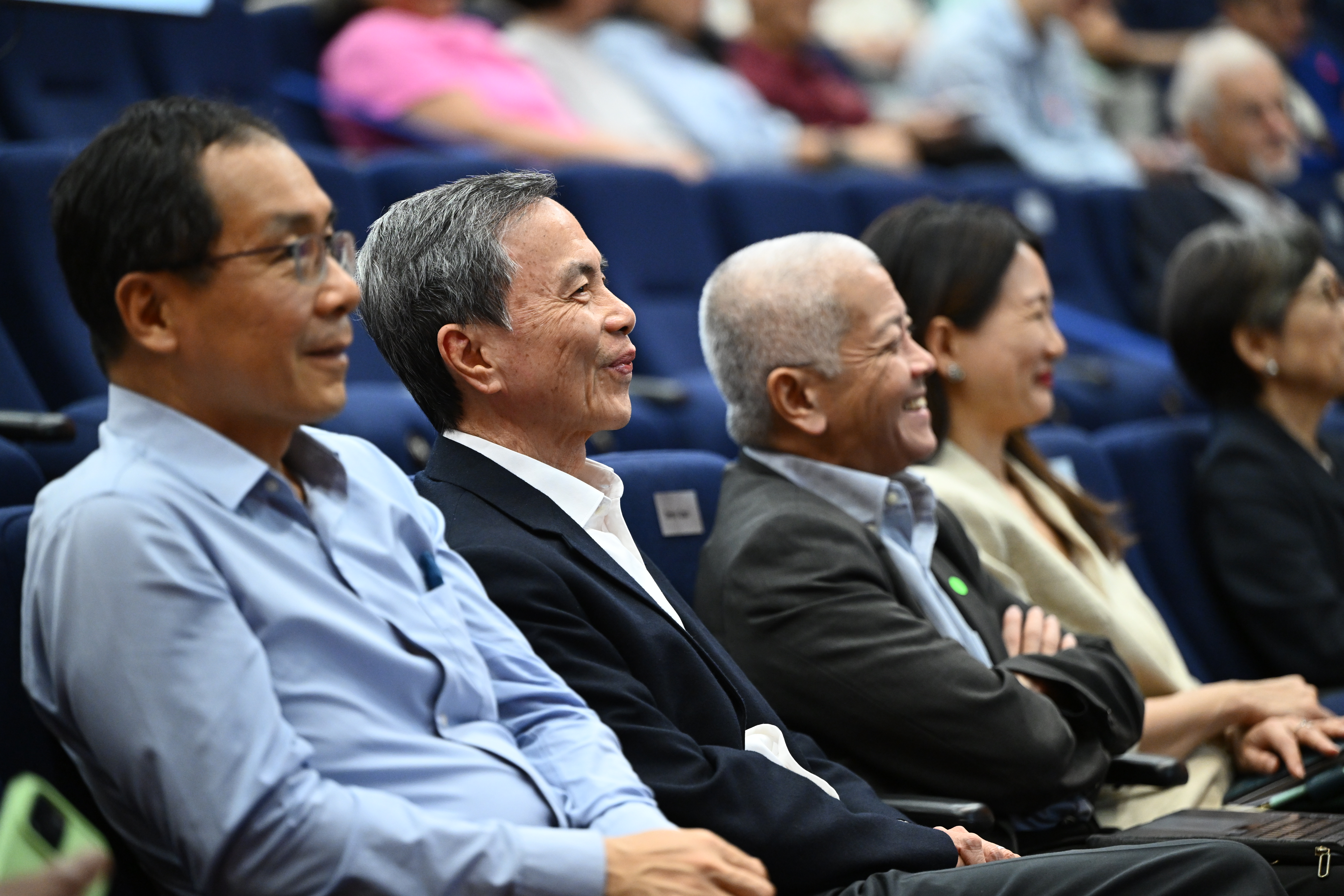
In response to these challenges, Prof Kong called for a fundamental rethinking of how research impact is evaluated. She advocated for a shift from traditional academic metrics to a more holistic approach that recognises societal contributions alongside scholarly achievements. She pointed to global frameworks like the San Francisco Declaration on Research Assessment (DORA) and the Leiden Manifesto for Research Metrics as useful frameworks for this transformation and highlighted the emergence of new evaluation tools, such as altmetrics and policy citation tracking, which capture the broader societal impact of research in ways that traditional measures cannot.
Prof Kong also emphasised the importance of engaging with diverse stakeholders and communicating research beyond conventional academic platforms, through the utlilisation of various channels including podcasts, videos, exhibitions, policy papers and pedagogical guides and toolkits.
Organising for Impact
As the lecture drew to a close, Prof Kong called for universities to develop a clear vision for societal impact. This requires a careful balance between focus, framework, and freedom, to ensure that research remains both rigorous and relevant. She urged universities to actively engage with their communities and advocate for evidence-based policies that address pressing societal challenges.
Q&A Highlights
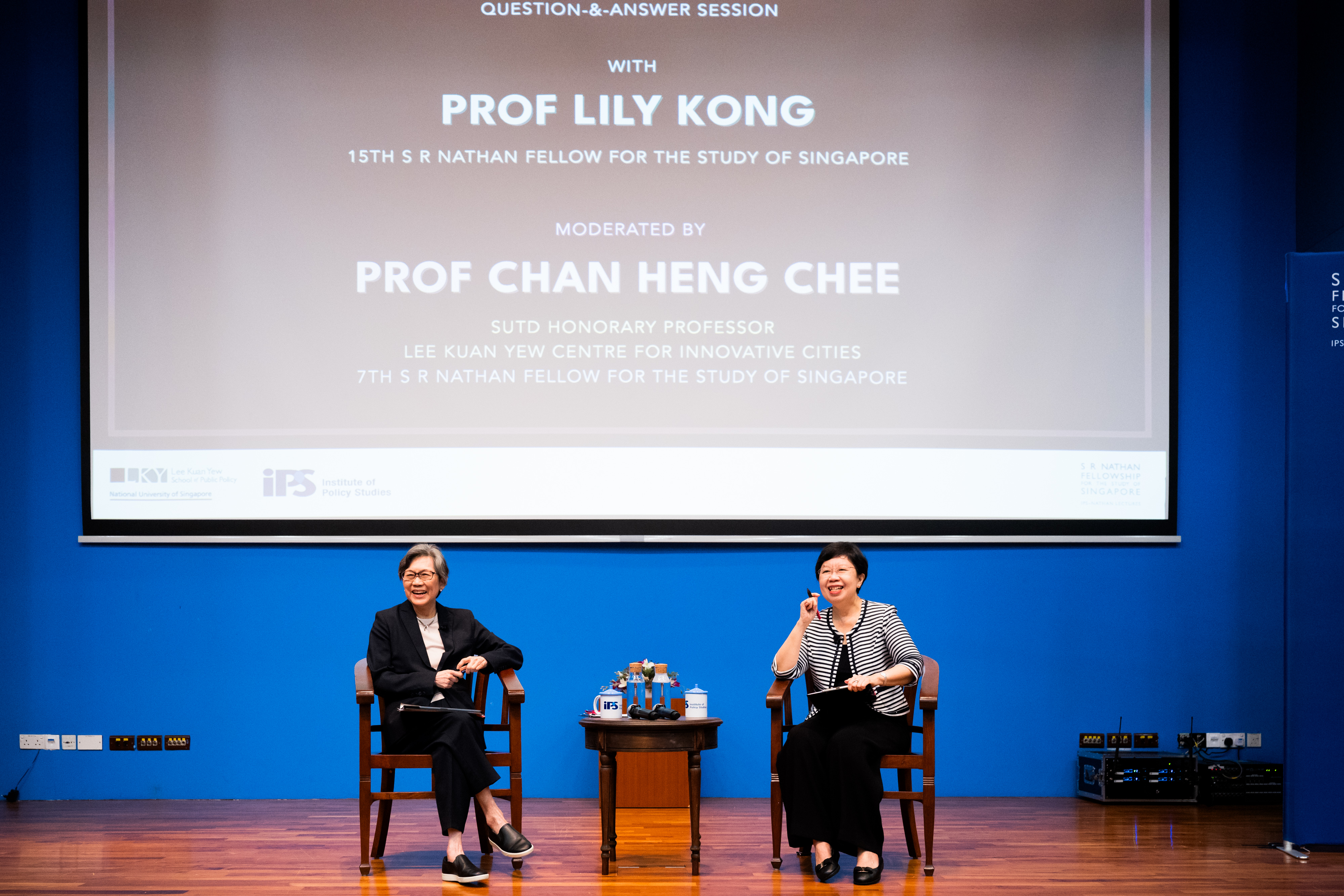
The lecture was followed by a Q&A session moderated by Professor Chan Heng Chee, Honorary Professor at the Lee Kuan Yew Centre for Innovative Cities and 7th SR Nathan Fellow. Reflecting on Singapore’s academic landscape, Prof Chan opened the discussion by sharing how strategies for small-state survival have shaped Singapore’s intellectual and political discourse. In turn, Prof Kong highlighted pioneering biomedical research at Duke-NUS and Chua Beng Huat’s analysis of pragmatism as Singapore’s defining ideology. These examples, she explained, demonstrate how researchers can navigate the intersection of theory and practice to address real-world problems, drawing from both local context and global insights.
While many researchers in Singapore are motivated to make a difference, academia still lacks a universally accepted framework for measuring impact in ways that balance global recognition with local relevance. Prof Kong discussed how SMU has been working on developing such standards— taking bearing from Singapore’s unique context while seeking alignment with international benchmarks.
One audience member raised the question of how universities can better engage the public in understanding and appreciating research. In response, Prof Kong outlined the media’s role in amplifying academic work and combating misinformation. By making research accessible to wider audiences, the media can enrich societal discourse and extend public education beyond institutional boundaries.
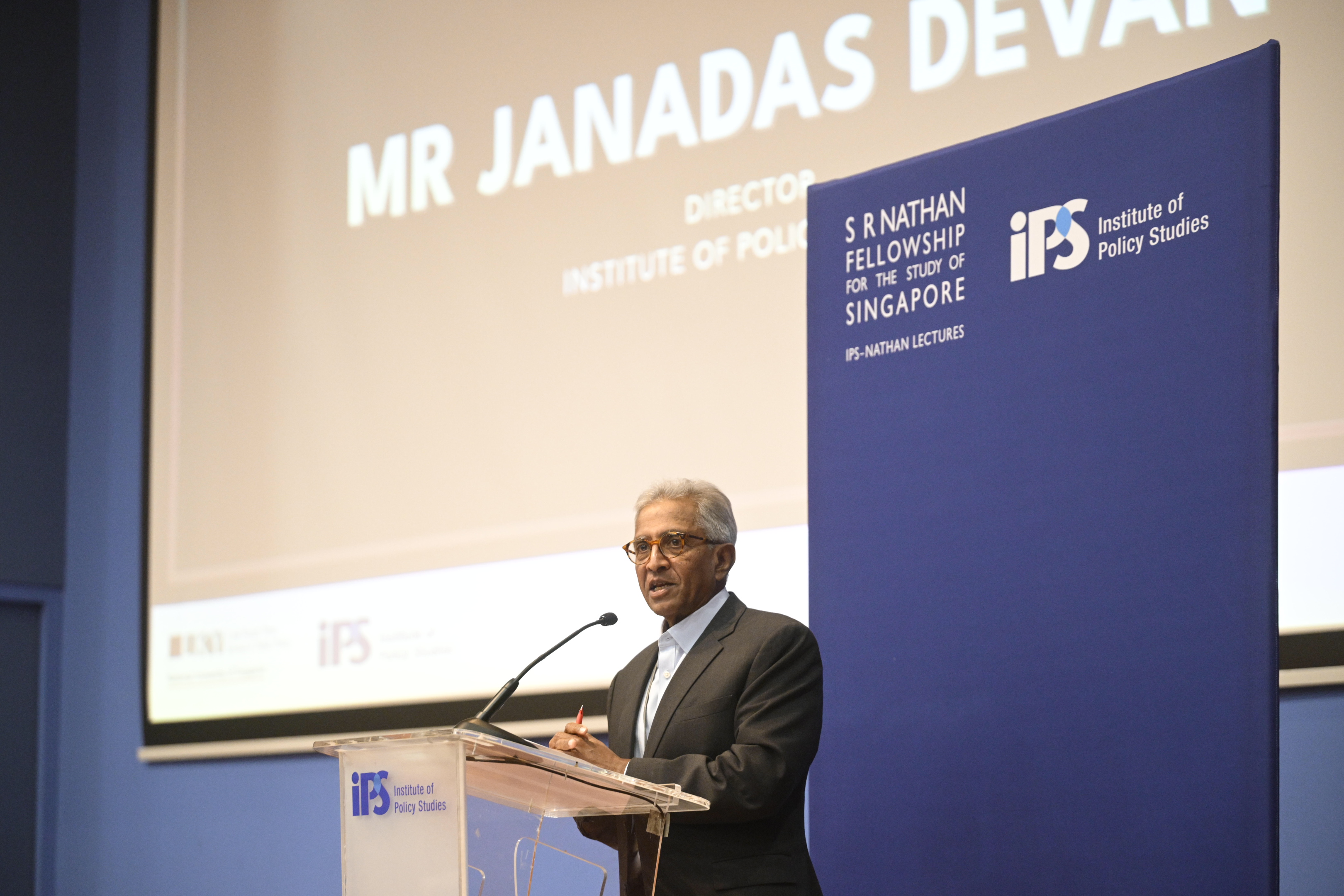
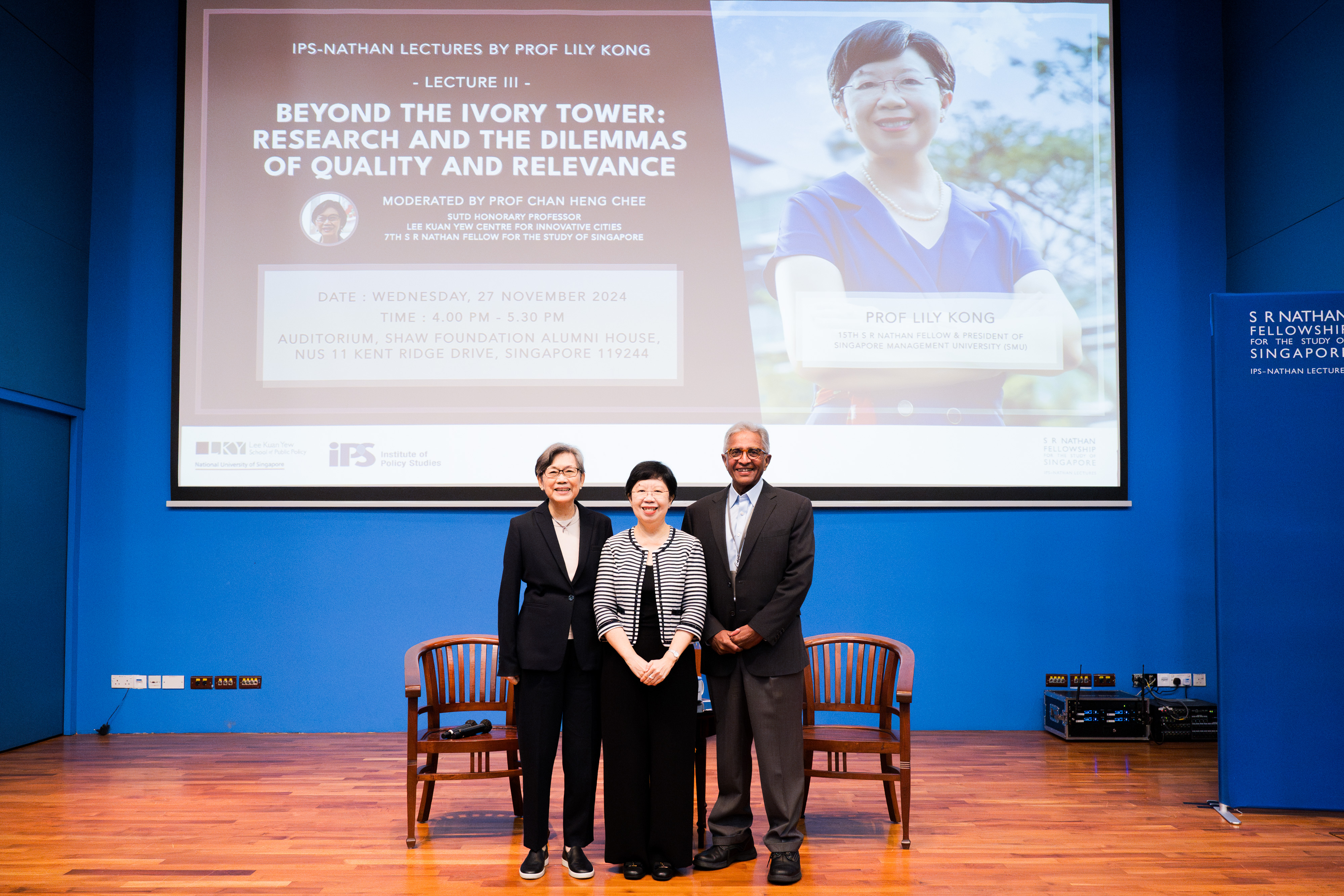
The session concluded with remarks from IPS Director Janadas Devan, who thanked Prof Kong for her contributions as the 15th SR Nathan Fellow. He highlighted how her lecture series, in addressing the philosophical underpinnings of universities, also focused with clarity on the practical and pragmatic challenges they face in remaining relevant to society. Indeed, the series was favourably received by attendees, who appreciated its timely examination of how universities must confront contemporary challenges while remaining vital contributors to societal progress.
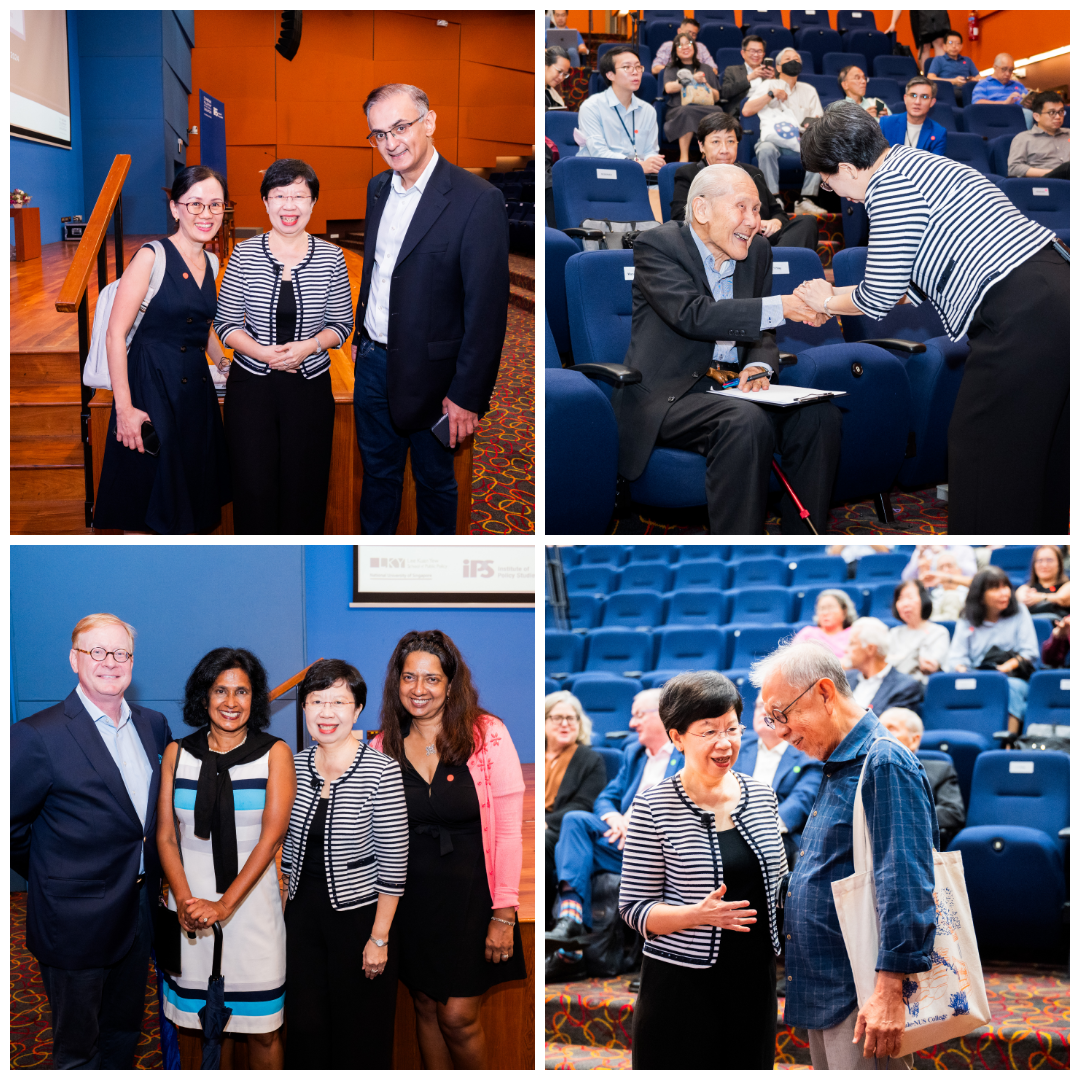
The Straits Times (27 Nov 2024): Universities must rethink their research impact beyond metrics and rankings: SMU president Lily Kong